The postpartum period is a time of profound change, filled with new responsibilities, emotions, and challenges. While the joys of motherhood are undeniable, the journey can also be overwhelming, leaving many new mums searching for ways to cope with the physical, emotional, and mental demands. One powerful tool that often goes overlooked is journaling. Writing down your thoughts, feelings, and experiences can offer a much-needed outlet for self-expression, reflection, and healing during this transformative time.
Why Journaling Matters Postpartum
Journaling provides a private, judgement-free space where you can explore your thoughts and emotions without fear of criticism. For postpartum women, this can be incredibly therapeutic. The act of writing allows you to process complex emotions, identify patterns in your thinking, and gain clarity on your experiences. It’s a form of self-care that can help you reconnect with yourself amid the demands of motherhood.
1. Processing Emotions
The postpartum period is often described as an emotional rollercoaster. From the highs of bonding with your baby to the lows of sleep deprivation, anxiety, and hormonal fluctuations, it’s normal to feel a wide range of emotions. Journaling allows you to explore these feelings in a safe and constructive way. By putting your thoughts on paper, you can gain insight into what’s driving your emotions and develop strategies to manage them.
For example, if you’re feeling overwhelmed by the demands of caring for a newborn, writing about your day can help you identify specific stressors. You might realise that certain tasks or situations trigger anxiety, which can then guide you in finding solutions or seeking support.
2. Tracking Your Progress
Motherhood is a journey, and journaling can help you track your progress along the way. Whether you’re working through physical recovery, navigating breastfeeding challenges, or adjusting to life with a newborn, journaling provides a record of your experiences and achievements. Looking back on previous entries can remind you of how far you’ve come and boost your confidence during difficult times.
For instance, if you’re struggling with breastfeeding, journaling about your daily experiences can help you see gradual improvements and build your resilience. You may also discover patterns in your baby’s feeding habits or identify specific times of day when breastfeeding is more successful, allowing you to make informed adjustments to your routine.
3. Cultivating Gratitude
Amidst the challenges of postpartum life, it can be easy to lose sight of the positives. Journaling is a powerful way to cultivate gratitude and shift your focus from what’s going wrong to what’s going right. By regularly writing about the things you’re grateful for, no matter how small, you can foster a more positive mindset and improve your overall well-being.
Try setting aside a few minutes each day to jot down three things you’re grateful for. It could be something as simple as your baby’s smile, a warm cup of tea, or a few moments of peace and quiet. Over time, this practice can help you develop a habit of recognising and appreciating the good in your life, even on the toughest days.
4. Enhancing Self-Awareness
Journaling encourages self-reflection, which can lead to greater self-awareness. By taking the time to explore your thoughts and feelings, you can gain a deeper understanding of yourself and your needs. This self-awareness is especially important in the postpartum period when it’s easy to lose sight of your identity amid the demands of motherhood.
Through journaling, you can reconnect with your values, passions, and goals, and find ways to integrate them into your new role as a mother. For example, if you realise that you’re feeling disconnected from your pre-baby self, you might explore ways to incorporate hobbies, self-care activities, or social connections into your routine.
5. Reducing Anxiety and Stress
The simple act of writing can have a calming effect on the mind. Journaling provides an outlet for releasing pent-up emotions and reducing anxiety. When you’re feeling stressed or overwhelmed, putting your thoughts on paper can help you organise your feelings and bring a sense of order to the chaos.
If you’re struggling with postpartum anxiety, consider using your journal as a space to write down your worries. Once they’re on paper, you can begin to challenge and reframe them, turning negative thoughts into more positive and constructive ones.
6. Strengthening Your Bond with Your Baby
Journaling can also be a way to strengthen your bond with your baby. Writing about your experiences as a mother, your hopes and dreams for your child, and the special moments you share can deepen your connection. Some mums even choose to keep a separate journal for their baby, documenting milestones, funny anecdotes, and personal reflections that they can share with their child in the future.
Overcoming the Stigma: Journaling Isn’t Just “Woo Woo”
Despite the many benefits of journaling, some people shy away from it because they see it as too "woo woo" or overly introspective. But journaling is far from being just a new-age trend. In fact, many mental health professionals recommend journaling as a practical and effective tool for managing stress, anxiety, and depression.
Think of journaling as a conversation with yourself—a way to check in on your emotional health, reflect on your experiences, and make sense of the whirlwind that is postpartum life. It’s not about writing perfect prose or uncovering deep psychological insights (unless you want it to be!). It’s simply a tool to help you process what you’re going through and feel more grounded in your daily life.
For those who are hesitant to start, remember that your journal is your space. It doesn’t have to be polished, profound, or even make sense to anyone but you. It’s a place where you can be completely honest with yourself, free from judgement or expectations. So if you’ve been put off by the idea of journaling because it sounds too "out there," I encourage you to give it a try. You might be surprised at how powerful and grounding it can be.
How to Get Started
Starting a journaling practice doesn’t have to be complicated. All you need is a notebook and a pen, or you can use a digital journal or app if that’s more convenient. The key is to approach journaling with an open mind and no expectations. There’s no right or wrong way to journal—what matters is that it works for you.
If you’re not sure where to start, here are a few prompts to inspire your writing:
- What has been the most challenging part of motherhood so far?
- What are you most grateful for today?
- How has your relationship with yourself changed since becoming a mother?
- What are your hopes for the next day, week or month?
- How can you show yourself more kindness and compassion?
- What do I need to get out of my head, and onto paper?
Journaling is a powerful tool for postpartum women, offering a way to process emotions, track progress, cultivate gratitude, and reduce anxiety. It’s a simple yet effective practice that can bring clarity, comfort, and connection during a time of profound change. Whether you’re new to journaling or have been keeping a journal for years, now is the perfect time to embrace this healing habit and explore the transformative power of writing.
Remember, your journal is your space—use it to nurture your well-being, honour your journey, and celebrate the incredible work you’re doing as a mother.















